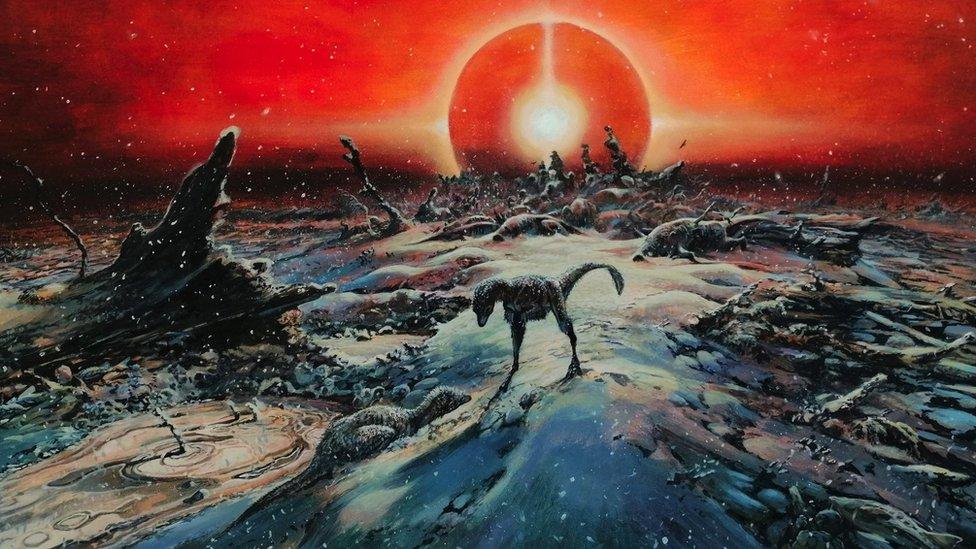Dinosaurs 'unlucky' to be wiped out by sulphur gases and climate cooling
- Published
- comments

Artist's impression of a scene from northern Laurentia, North America, in the period a few weeks after the asteroid impact
'Unlucky' dinosaurs were wiped out by a deadly mix of toxic gases and climate cooling, according to new research.
Scientists say the gases were let off into the Earth's atmosphere after a six-mile-wide asteroid hit what is now the Yucatan Peninsula, in North America, around 66 million years ago.
They found that sulphur gases spread around the world for years in the Earth's atmosphere, cooling the climate and wiping out life.
"The dinosaurs were just really unlucky," said Dr Aubrey Zerkle from the University of St Andrews.
Researchers studied the sulphur found in rocks along the Brazos River in Texas, USA
The cretaceous period lasted from around 145 to 66 million years ago and featured a warm climate with reptiles and dinosaurs dominating the planet.
A sudden mass extinction event brought it to an end and marked the start of the cenozoic era, in which we still live today.
Scientists had long thought that toxic sulphur gases in the air were a big reason of the mass extinction, but they didn't know to what level.
So, a team of international scientists looked at the sulphur in material that was thrown out by the asteroid impact and landed in a nearby sea.
The initial effects of the impact were caused by rock dust, soot and wildfires, but the sulphur aerosols extended the time period over which life would have suffered from extreme cooling, reduced sunlight and acidification of the land surface and oceans.
The scientists say that sulphur in the atmosphere led to many problems, including long-term cooling of the planet.
It caused acid rain and cut the light available for photosynthesis, which is important for plant life and marine plankton that make up the bottom of the food chain.
They say it was this long period of cooling that likely played a big role in speeding up the extinction of dinosaurs and other life.
Scientists from the University of St Andrews, Syracuse University in New York, the University of Bristol and Texas A&M University carried out the research, which was published in the Proceedings of the National Academy of Sciences journal.
- Published15 February 2022
- Published6 March 2022
- Published3 December 2021
